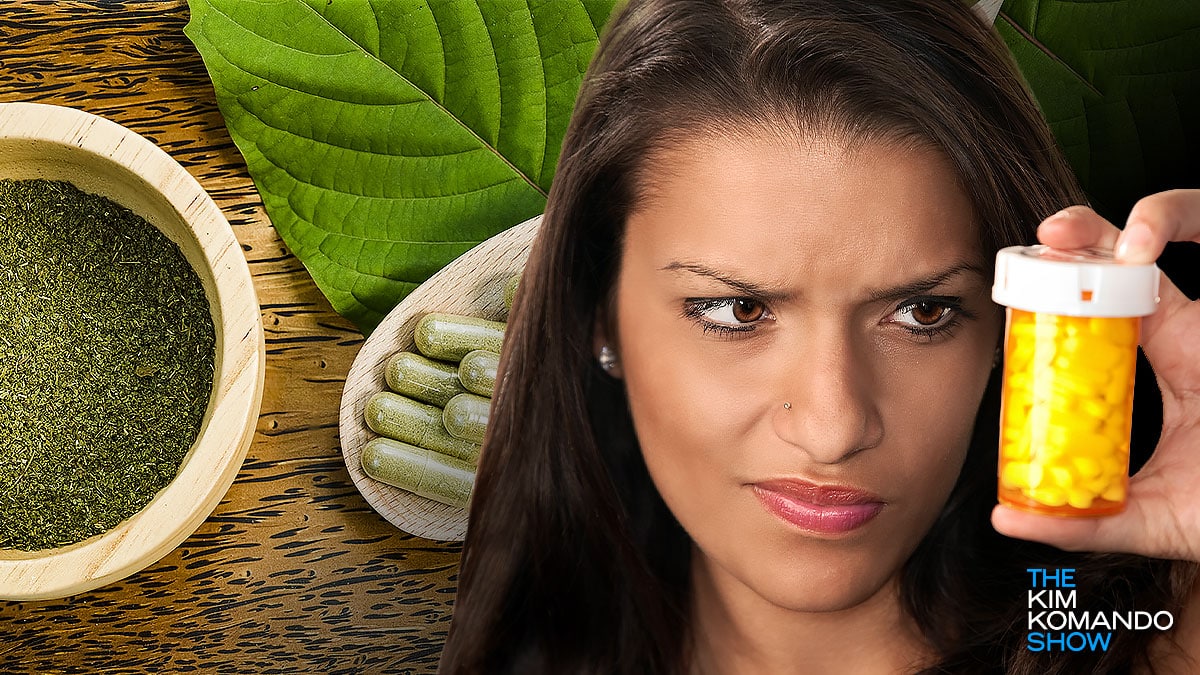Have you seen signs for kratom at your local gas station or smoke shop? It’s probably on the counter right next to the erectile dysfunction pills. It’s also for sale all over the internet and social media.
While some claim the herbal supplement changed their lives, handling pain management and promoting wellness, there’s a dark underbelly. People taking it are dying.
Some call it a wonder drug
Kratom comes from the leaves of a tree native to Southeast Asia. When ingested, the chemical compounds in the leaves create different effects on the body. Yes, including trippy ones. People typically take kratom by drinking it in tea or swallowing kratom capsules.
Some say the plant acts like a stimulant. For others, it’s a sedative. Many say it combats depression and anxiety. Others rely on it to manage pain or to curb opioid withdrawal symptoms.
Kratom on the web
With kratom’s blown-up popularity comes an endless sea of online vendors. Anyone can do a quick Google search on the drug and find countless ways to get their hands on some. But high demand also has increased the amount of low-quality kratom out there.
Because kratom is an herbal supplement, it exists in a gray area of the law. In other words, the FDA can’t regulate it as it would a prescription drug.
Deaths by kratom
A 39-year-old mother of four, Krystal Talavera, collapsed in her kitchen while making breakfast for her family. Patrick Coyne, a marine mechanic and father of three, died in his sleep. J.D. Butler was talking to his girlfriend about moving in together when he had a seizure. All are dead because of kratom.
Some start taking it, thinking it’s safe and non-addictive, only to find themselves hooked. Although some opioid addicts turn to the drug to wean themselves off harder substances like heroin and fentanyl, kratom acts as a gateway to opioids for others.
Kratom with caution
If you’ve got kratom-loving friends who swear it’s harmless, hit ’em with these cold, hard facts:
- In 2016, the Drug Enforcement Administration (DEA) moved to classify kratom as a Schedule 1 drug but reversed its plans after pushback from the American Kratom Association. Yeah, that would’ve hurt sales.
- Kratom is still unregulated at the federal level, but six states have bans on the substance: Alabama, Arkansas, Indiana, Tennessee, Vermont and Wisconsin.
- In April 2022, the FDA issued a kratom warning, saying it “affects the same opioid brain receptors as morphine” and appears to have “properties that expose users to the risks of addiction, abuse and dependence.”
- A 2022 study found nearly one-third of U.S. kratom users met the “kratom use disorder” criteria, which included increased use, tolerance, withdrawal, unsuccessful quit attempts and craving.
- Recent research links kratom to liver damage and death.
🤝 I know all this information might be a lot to take in, especially if you’ve heard about kratom from friends or online. I just want you to know I’m sharing this with you because I care. The stories are real, and the risks are significant.
If you or someone you know is considering kratom or struggling with addiction, please contact professionals who can help. Local healthcare providers, addiction specialists or national helplines like SAMHSA’s National Helpline (1-800-662-HELP) can offer assistance.
